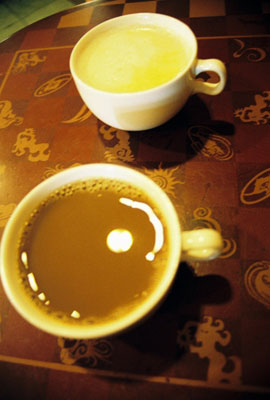All Nonfiction
- Bullying
- Books
- Academic
- Author Interviews
- Celebrity interviews
- College Articles
- College Essays
- Educator of the Year
- Heroes
- Interviews
- Memoir
- Personal Experience
- Sports
- Travel & Culture
All Opinions
- Bullying
- Current Events / Politics
- Discrimination
- Drugs / Alcohol / Smoking
- Entertainment / Celebrities
- Environment
- Love / Relationships
- Movies / Music / TV
- Pop Culture / Trends
- School / College
- Social Issues / Civics
- Spirituality / Religion
- Sports / Hobbies
All Hot Topics
- Bullying
- Community Service
- Environment
- Health
- Letters to the Editor
- Pride & Prejudice
- What Matters
- Back
Summer Guide
- Program Links
- Program Reviews
- Back
College Guide
- College Links
- College Reviews
- College Essays
- College Articles
- Back
Common Threads MAG
When I told people about my opportunity to travel to Lebanon, their response didn’t usually reflect my enthusiasm. They either asked why I wanted to go, wondered where Lebanon was, or made some crude religious joke. Those responses weren’t too surprising, considering the stereotypes of the Middle East. In fact, without their reactions, I wouldn’t have been as motivated to go. I wanted to set the record straight and show my community that Lebanon is not a war-ridden sand pit but a verdant land with a cultured people.
The informed person knows that not all Muslims are terrorists. What many don’t realize is that in Lebanon, Hezbollah isn’t considered a terrorist group but a political party as well as a militant group. The Lebanese people acknowledge Hezbollah as the group that originally drove Israeli troops out of southern Lebanon and thus this group is respected for what it did to end that conflict.
Even with the presence of this militant group, I never once feared for my safety. In fact, I felt more secure walking the streets of Tripoli at night than I do in my own neighborhood. Why? There is little random crime because the punishments are so severe. For example, a convicted child molester’s punishment is death.
Outsiders need to realize how Americanized Lebanon is. Few wear traditional garb, and Beirut is considered the Paris of the Middle East (Elie Saab, Lebanon’s beloved designer, designed Halle Berry’s famous Oscar dress). Teenagers listen to System of a Down more than traditional Arabic music, and they all have MSN Messenger accounts.
Yet, as American as the country seems, tradition is the keystone of Lebanese life. The traditions of food, family, and hospitality will never fade. Its bold examples were hard to miss, as my visit coincided with the Islamic holiday of Ramadan.
Although a significant portion of the country is Christian, most shops don’t serve food during Ramadan until after sunset when the fast is broken, which made eating difficult for us. Without our wonderful hosts, we wouldn’t have eaten as well as we did. One school in Sidon laid the most extravagant table, offering us Turkish coffee, mankoush, baklava, and other sweets. As we gorged ourselves on this delicious offering, the staff watched with smiles. They were more than happy to show us their famed hospitality, and since we were always offered so much, one of the first Arabic words I learned was shukran, meaning thank you.
Family is such an important part of Lebanese culture that it’s not uncommon for families to use their hosting skills on a nightly basis. On most Ramadan evenings you’ll find people traveling from house to house, visiting with everyone after their fast-breaking meal, sipping coffee and chatting.
By partaking in these discussions, I learned how to make traditional Turkish coffee, found out that most Lebanese are tri-lingual, speaking Arabic, French, and English, and realized that Kahlil Gibran, the artist and author of the beloved book The Prophet, was actually Lebanese.
The most important fact I learned from these late-night conversations was the concept of wusta. This is an Arabic word that doesn’t translate into English, and is interlaced into the politics and society of Lebanon. Wusta is best explained as having connections or influence. An example is the driving age in Lebanon. A lot of kids start before the designated age of 18 if they know someone on the police or in the government. They have wusta. Or, let’s say a minor wants to go to a nightclub. If they have wusta with the owner, it won’t be a problem.
Wusta is in the government, police, business, and overall culture of Lebanon. It’s partly why the path to democracy has been difficult, but, of course, similar things happen in our country with the power of special interest groups and friends in the right places, et cetera.
With these many common threads between the Lebanese and American cultures, one would think we’d do more to help these people. They speak our language and dress in the same way, yet most Americans still see them as very different and “other.”
With this small country making big headlines, I urge you to consider the people and lives behind the stories. They are more than just numbers, more than just Muslims. They are fellow human beings with lives that look a lot like yours.

Similar Articles
JOIN THE DISCUSSION
This article has 0 comments.
